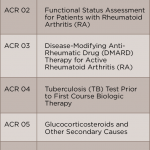(Reuters)—U.S. health spending is expected to grow at an average rate of 5.5% every year from 2018 over the next decade and will reach nearly $6 trillion by 2027 as more people become eligible for Medicare, a government health agency said on Wednesday.
Rising income levels, better employment rate and more people enrolling for Medicare, the federal health insurance program for people aged 65 and above and the disabled, will cause healthcare spending to rise to 19.4% of the U.S. economy by 2027, the Centers for Medicare & Medicaid Services (CMS) said.
In 2017, healthcare spending accounted for 17.9% of the country’s gross domestic product.
Annual spending growth for Medicare is expected to average 7.4% over the 10-year period, CMS said.
That number exceeds spending projections for Medicaid—the government insurance program for low income Americans—and private health insurance plans, which are expected to average 5.5% and 4.8% respectively, over the same period.
The CMS said it expects Medicare enrollment growth to peak at 2.9% in 2019.
Prescription drug spending is also expected to rise and average 5.6% annually between 2018 and 2027 as employers and insurers push patients with chronic conditions to adhere to medications better, and as new and expensive drugs enter the market.
Hospital spending growth is projected to average 5.6% per year between 2018 and 2027.
By 2027, federal, state and local governments are expected to fund 47% of national health spending, compared with 45 percent in 2017, according to the report.
The CMS said that all projections are reflective of current laws and do not take into account policy changes under consideration.



